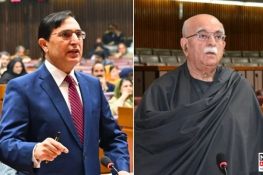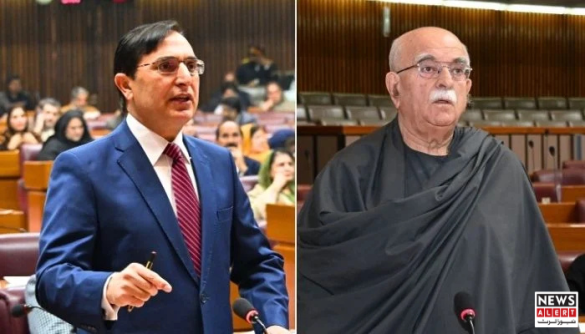Pakistan’s Chief Justice, Justice Yahya Afridi, has convened a full court meeting for Friday to deliberate on the proposed 27th Constitutional Amendment. The move comes after a series of unprecedented letters from senior Supreme Court judges, urging the judiciary to confront its past and establish clarity on constitutional procedure.
Full Court to Meet Ahead of Friday Prayers
According to court sources, the full court meeting will take place before Friday prayers at the Supreme Court in Islamabad. At least three sitting judges had formally requested the Chief Justice to call the session.
The discussion is expected to focus on the legal, constitutional, and institutional implications of the proposed amendment, which according to officials may affect judicial appointments, powers, or oversight mechanisms. Government officials have not yet released the full text of the amendment, but political analysts say it may redefine critical aspects of the judiciary–executive relationship.
Judges’ Letters Spark Unusual Debate Within Judiciary
The meeting follows a rare public disclosure of internal dissent within the Supreme Court.
Earlier this week, Justice Athar Minallah wrote a detailed letter to Chief Justice Afridi, criticizing the judiciary for failing to stand with the public during key moments in Pakistan’s political history. His letter referenced several high-profile cases that remain controversial today.
Justice Minallah wrote that the judiciary must acknowledge its past mistakes, including the 1979 judicial execution of former Prime Minister Zulfikar Ali Bhutto. He described the verdict as an unforgivable judicial crime that continues to haunt the institution.
Historical Cases Cited as Evidence of Judicial Missteps
Justice Minallah linked subsequent political cases to what he called a pattern of judicial overreach or undue influence.
He cited actions taken against former Prime Minister Benazir Bhutto, former Prime Minister Nawaz Sharif, and Pakistan Muslim League–Nawaz leader Maryam Nawaz. According to him, these cases contributed to public distrust and reinforced the perception that the judiciary had not maintained impartiality.
He also noted that the Islamabad High Court, despite enjoying public confidence during sensitive political cases, was targeted and undermined. Justice Minallah argued that honest judges often faced institutional pressure, including selective accountability measures.
Truth Remains Limited to Whispers
One of the strongest sections of Justice Minallah’s letter emphasized the need for institutional reform. He noted that confessions by “brave judges” about past interference and wrongdoing should weigh heavily on the Supreme Court’s conscience.
He said that truth in Pakistan’s judicial system often remained confined to whispers, while those who refused to compromise were subjected to retaliatory scrutiny.
His remarks have renewed national debate about judicial independence, a topic that resurfaces frequently in Pakistan due to its turbulent political history.
Justice Mansoor Ali Shah Also Calls for Urgent Consultation
Before Justice Minallah’s letter, Justice Mansoor Ali Shah had also written to the Chief Justice. He urged the top judicial office to immediately contact the executive branch.
Justice Shah stressed that no constitutional amendment should be passed without prior consultation with judges of constitutional courts. He warned that bypassing the judiciary in such decisions could undermine the constitutional balance of power.
Both letters suggest growing concern among senior judges that the proposed amendment might alter the judiciary’s role or autonomy.
Why the 27th Amendment Matters
Although details of the amendment are not yet public, constitutional experts argue that it may influence several aspects of judicial power. The government has already taken its first major step, as the Cabinet Approves 27th Constitutional Amendment, highlighting how rapidly the process is moving.
-
the judicial appointments process
-
terms and powers of judges
-
oversight mechanisms for accountability
-
the relationship between the judiciary and the executive
Any change to these areas carries significant consequences for Pakistan’s political system. Amendments affecting the judiciary have historically led to intense debate. For example:
-
The 18th Amendment (2010) reshaped judicial appointments through a judicial commission.
-
The 21st Amendment (2015) introduced military courts for terrorism cases, sparking legal and human-rights concerns.
Against this backdrop, the Supreme Court’s decision to hold a full-court meeting reflects the gravity of the issue.
A Critical Moment for Judicial Credibility
Observers say Friday’s meeting could mark a turning point. Public confidence in Pakistan’s judiciary has fluctuated for decades, shaped by political interventions, controversial verdicts, and internal divisions.
The letters by two respected judges, both known for their strong independent stance, have added urgency to the discussion.
The full court meeting is expected to evaluate the constitutional amendment’s implications and possibly produce a unified judicial position.
As Pakistan navigates a complex political landscape, the judiciary’s internal debate may play a decisive role in shaping the country’s constitutional future.















